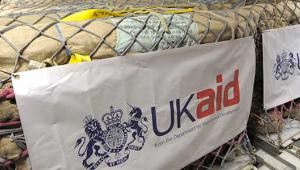By Mark Smulian | 25 July 2013
Better information is needed on whether British overseas aid spending is most effectively channelled through bilateral deals or multilateral bodies, a parliamentary inquiry has said.
MPs on the international development select committee raised concerns about the UK government’s capacity to monitor multilateral organisations in countries where it has no programmes of its own.
The UK government’s Multilateral Aid Review in 2011, the first of its kind, saw funding cut to four bodies, another four warned to improve, and only nine of the 43 examined rated ‘very good’.
Monitoring UK aid when it flows through multinational organisations was inevitably difficult, the committee said, with DFID officials having visited only Mali and Indonesia among counties with no bilateral aid for the 2011 review.
Committee chair Sir Malcolm Bruce said: ‘We accept that country visits are not the only way of gathering evidence.
‘For a number of multilateral organisations, the UK has a seat on the board, which obviously provides us with some oversight. Nevertheless, we feel strongly that for the next Multilateral Aid Review, the team should undertake more visits to countries in which the UK has no bilateral programmes.’
The committee’s report Multilateral aid review called on DfID to compare the value for money offered by multilateral organisations with that of the UK’s bilateral aid programmes.
Some 42% of the DFID’s budget flows through multilateral bodies.
Yet for 35 out of the remaining 39 used, the government failed to draw any such comparisons ‘making it difficult to know whether bilateral aid or multilateral aid represented better value for money’.
Bruce said: ‘It is in everybody’s interests for the government to make informed decisions about aid spending. When the UK provides funding to an international organisation, we need to have some assurance that this is better value for money than the alternative.’
He said it would not be sensible for all donor countries to conduct identical evaluations of aid bodies and that in many cases more use should be made of the Multilateral Organisation Performance Assessment Network to monitor performance efficiently.
The MPs said the next review, planned for 2015, should assess multilaterals’ commitment to tackling violence against women and girls, since this was among DFID’s priorities.
‘It is impossible to achieve effective development without tackling violence against women and girls,’ said Bruce.
He also said DFID should address concerns that the 2011 review had been criticised by some multilateral bodies as being inappropriately designed as a ‘one size fits all’ exercise.
The committee warned that government-imposed restriction on DFID’s administration costs could create a perverse incentive for the department to ‘export’ these costs to multilaterals whose own administration spending was already too high.













